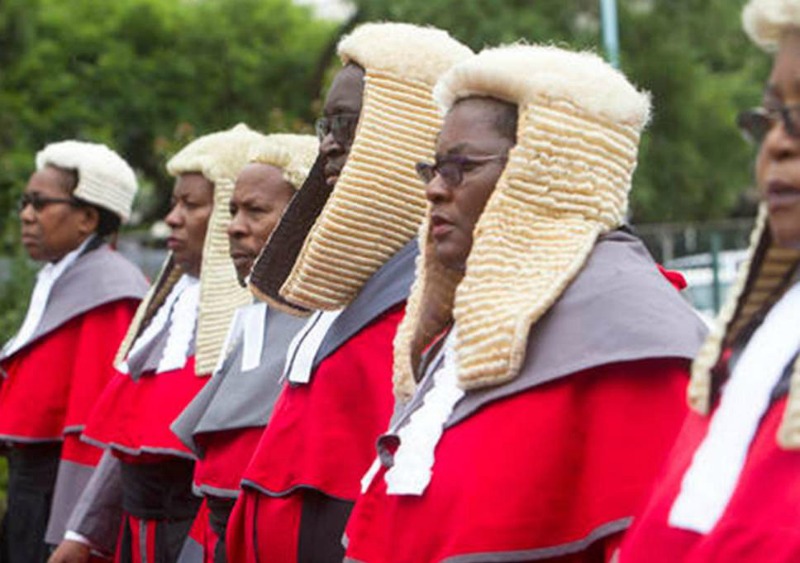Zimbabwe: Lawyers challenge Judges wearing $3,000 wigs, say trend is wasteful, outdated and scary
In its analysis of seven pieces of legislation, ZLHR argued that money used to purchase the wigs, a vestige of colonial Rhodesia, could be used to finance better deserving requirements.

Zimbabwe Lawyers for Human Rights (ZLHR) has challenged the continued wearing of wigs by judges in higher courts as outdated and intimidatory.
In its analysis of seven pieces of legislation, ZLHR argued that money used to purchase the wigs, a vestige of colonial Rhodesia, could be used to finance better deserving requirements.
The wigs, introduced in the 1600s in Britain, where they were fashionable and viewed as a sign of respect, cost between £457.50 and £2 495.83 (US$3 265) each.
There was public uproar in 2019 when the Judicial Services Commission (JSC) purchased 64 of the wigs in question at a total cost of £118 400 (US$132,973.86) from UK firm Stanely Ley Legal Outfitters in London. Each wig cost about £1 850.
"The practice of wearing wigs by judges of the superior courts in Zimbabwe must be dropped as this is now outdated and not relevant," said ZLHR.
"The wigs were introduced to Africa during colonial days. Most former British colonies that include Zimbabwe still have the practice of judges wearing wigs. Some have argued that wigs create an environment of intimidation and fear that is needed in the court room.
"This practice must be dropped to save money that could be reallocated for other necessary costs such as subsidising the user fees."
Kenya, South Africa and other Commonwealth countries have abandoned use of the wigs, while Britain itself did away with the century old culture in 2017.
Zimbabwe, a former British colony, still adheres to British culture in governance reflected in its parliamentary model, the manner in which its President opens and presides of government and other State functions, besides the courts.
The ZLHR analysis follows Cabinet's approval to formulation of the Judicial Laws amendment bill that will introduce virtual court sittings.


